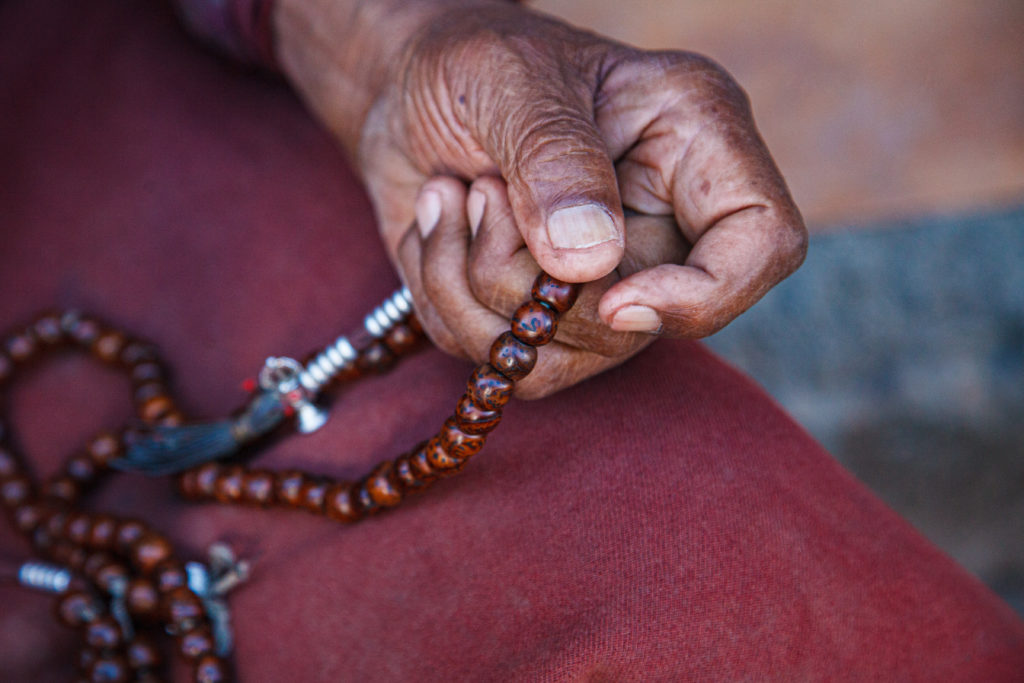
By Annie Hewitt
One of the most striking aspects of principled nonviolence is the way in which it compels us to reconsider our understanding of familiar terms and practices. For instance, our commonplace idea of what it means for something ’to work’, or for someone ‘to win’, or how to distinguish ‘ends’ from ‘means’ are reconceived when explored through the lens of principled nonviolence.
The same is true for the word ‘prayer’. If we think about what it means to pray, we tend to imagine that we send our prayers out from within us towards someone or something else: we have a need or a desire — some kind of lack — and we pray for support, we pray to be fulfilled from a source that lies beyond and above our own particular selves.
Professor Michael Nagler explains how we might think about prayer differently, and this new understanding is grounded in the notion that prayer is not something that flows from us, asking something of the same entity external to our individual being. Instead, genuine prayer grows from the idea that reality, that entity to whom we pray, is actually within each and every one of us. This reality is the source of our power, and a reflection of the fact that we are inextricably connected to one another, to the earth and all other beings. Most people already feel a kind of connection to families and close friends, but principled nonviolence sees this unity as the dynamic force of love, embracing not only our dearest but our fiercest enemies. Meaningful prayer must be directed to that deep, eternal and internal reality which is our own true self.
This relocation of reality from without to within is perhaps the most radical shift principled nonviolence makes to the usual notion of prayer. But Gandhi recognizes two other key aspects of prayer, the first might seem counter-intuitive: prayer must be selfless. Prayer cannot be aimed solely at one’s own private gain, rather it must serve the greater good and benefit others as well. And given the notion that we are all in and of the same reality, the entire notion of selfless is another term that’s turned on its head!
Finally, prayer entails real concentration. Prayer is not a casual exercise, to be taken up lightly, on a whim. It must be thoughtful, pointed and deliberate. After all, a prayer is an attempt to shift reality in some way; in a sense, when we pray, we want to make the force of love shine brighter. This exalted aim deserves our full attention.
If you are seeking a path of potential and centeredness, a space to explore what is noble and beautiful within ourselves and our world, check out our self-paced online retreat, Sacred Humanity.








